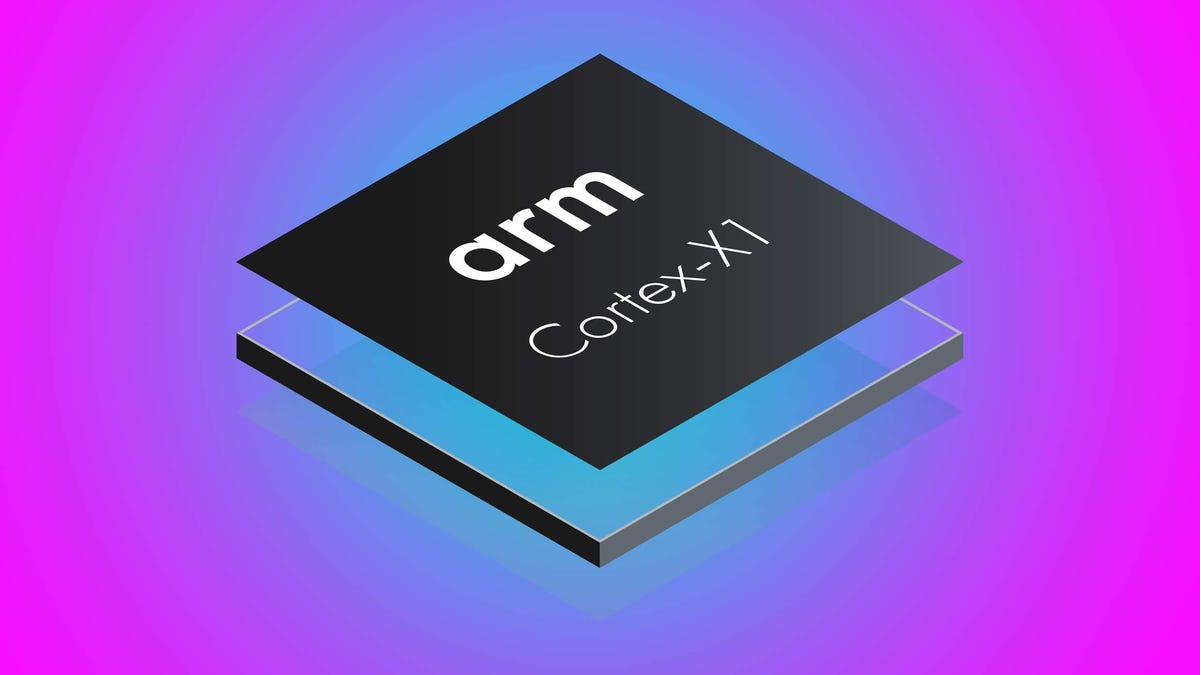Android flagship phones getting two speed boosts in 2021 with new Arm chips
Arm could help chip allies like Qualcomm and Samsung push speeds higher with the A78 processor design and its X1 customization plan.

Arm Cortex-X1 chip design can be customized for better performance over the more mainstream Cortex-A78 design.
For years, Android phone chips have trailed Apple iPhone processors in speed tests. But Arm, a chip company whose technology is used by both mobile camps, has a chip design project called X1 that should give Android a significant speed boost beyond its usual annual upgrade.
One boost will come with the new Cortex-A78 processor design that Arm unveiled in May. It should provide a 20% speed boost compared with Arm's current A77, said Paul Williamson, general manager of the product line. The second boost, for chips based on the more customized Cortex-X1 variation, will get another boost of up to 22% beyond the regular A78 designs.
The new processing power should help top-end Android phones and improve laptops like the Microsoft Surface Pro X that use Arm family chips rather than Intel's Core processors. Competition with the iPhone, however, is the top priority. An iPhone 11 Pro earns a Geekbench speed score of 1,328, head and shoulders above the Samsung Galaxy S20 Ultra at 840. With a score of 918, even the iPhone X is faster than the Samsung flagship phone despite arriving more than two years earlier.
"There is no such thing as 'fast enough,'" said David Kanter, a chip expert at the Real World Technologies research firm. More performance lets phone makers offer features like advanced image processing for better photos. It also makes scrolling smoother, launches apps faster and helps pave the way for newer technologies like augmented reality.
Arm, the power behind the chip throne
Arm doesn't manufacture chips on its own but instead licenses designs to processor makers like Qualcomm, Samsung and Huawei. It also licenses the Arm chip instruction set -- the set of commands that software uses to tell the chip what to do -- to companies like Apple that design their own chips. Apple has leeway to craft its A series of chips, like the A13 in the iPhone 11 and iPhone SE, to meet its specific needs.
With X1, Arm is helping chipmakers customize designs so they can get better performance. The speed boost over the A78 demands a larger chip size that's more expensive to manufacture, a design that consumes more power, or both, depending on chipmakers' priorities, Williamson said.
The 22% speed boost comes through modifications like new data pathways that permit more high-speed cache memory so chips get quicker access to data, Williamson said. In addition to the general speed boost, X1 can double AI performance, Arm said.
Arm chip partners
Arm wouldn't yet say who's gone through the X1 licensing and customization program.
But industry observers have ideas. "I can see Qualcomm and Samsung interested in this. Maybe Huawei," said Moor Insights and Strategy analyst Patrick Moorhead. "Smartphone vendors are looking for areas of growth, and both Samsung and Huawei are stepping it up."
For chipmakers happy with a more mainstream design, there's Arm's A78. Along with the 20% performance boost for ordinary processor tasks, there's a 25% boost in graphics speed and 25% boost in running artificial intelligence jobs like recognizing faces in video or translating speech into text.
Better performance is critical for a chip designer in a competitive smartphone market. "The demand is insatiable," Arm's Williamson said.
See also: Best Android phone of 2020

